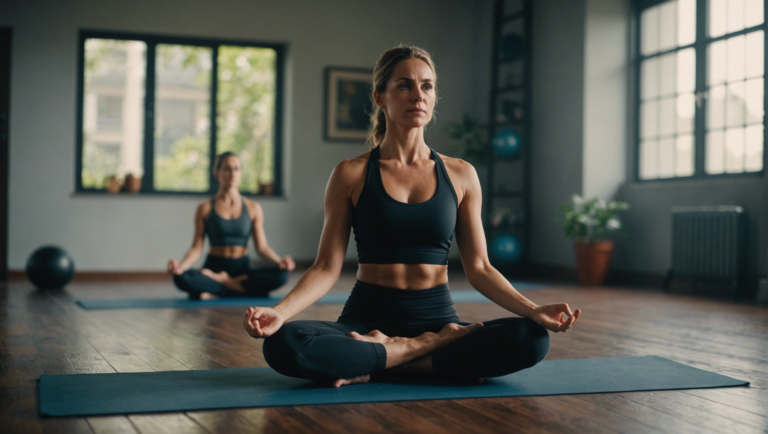What To Expect: The Timeline Of A 200 Hour Yoga Teacher Training
The Importance of Completing a 200 Hour Yoga Teacher Training
Yoga has gained immense popularity worldwide, not only as a form of physical exercise but also as a holistic practice that promotes overall well-being. For individuals looking to deepen their practice and share their passion for yoga with others, completing a 200-hour yoga teacher training program is a significant step. This training provides aspiring yoga teachers with the knowledge, skills, and confidence needed to lead their own classes effectively. Let’s delve into what to expect in terms of the timeline of a 200-hour yoga teacher training program.
The Beginning: Foundations of Yoga (Weeks 1-2)
The initial phase of a 200-hour yoga teacher training typically focuses on the foundational aspects of yoga practice. During the first couple of weeks, students can expect to dive into the history and philosophy of yoga, including an exploration of key texts such as the Yoga Sutras and the Bhagavad Gita. Additionally, basic concepts of anatomy and alignment will be introduced to ensure a safe and effective practice.
Delving Deeper: Asana, Alignment, and Sequencing (Weeks 3-6)
As the training progresses, students will likely spend more time on the study and practice of asanas (yoga postures). This period often involves detailed instruction on proper alignment in various poses and how to sequence them intelligently. Emphasis may also be placed on understanding the benefits of different asanas and how to modify them for different bodies and levels of experience.
The Art of Teaching: Communication and Class Management (Weeks 7-10)
In the following weeks, aspiring yoga teachers can anticipate learning the art of teaching. This includes exploring effective communication skills, learning how to create a safe and inclusive class environment, and understanding the responsibilities of a yoga teacher. Teaching practicums may be introduced during this phase to provide students with hands-on experience in leading classes under the guidance of experienced instructors.
Finding Your Voice: Personal Development and Confidence Building (Weeks 11-12)
Towards the end of the training program, participants may engage in activities aimed at personal development and building confidence as a teacher. This could involve reflections on one’s personal journey with yoga, identifying teaching styles that resonate with them, and overcoming any fears or insecurities related to teaching. Peer feedback and mentorship during this phase can be invaluable in helping students grow and find their unique teaching voice.
The Culmination: Graduation and Beyond
Upon successful completion of the 200-hour yoga teacher training program, graduates are typically awarded a certification that allows them to register as yoga teachers with reputable yoga alliances. This certification opens up opportunities to teach yoga classes in studios, gyms, wellness centers, or even start their own yoga ventures. The journey of a yoga teacher does not end with the training program but marks the beginning of a lifelong learning and growth process in both personal practice and teaching.
Embarking on a 200-hour yoga teacher training journey is a transformative experience that goes beyond just learning how to teach yoga. It is a journey of self-discovery, skill development, and personal growth that equips individuals with the tools and confidence to share the gift of yoga with others. The timeline of a 200-hour yoga teacher training program is structured to provide a comprehensive education in various aspects of yoga, ultimately preparing students to step into the role of a knowledgeable and compassionate yoga teacher.
Curriculum Overview of a Typical 200 Hour Yoga Teacher Training Program
A 200-hour yoga teacher training program offers a comprehensive curriculum that equips individuals with the knowledge and skills needed to become certified yoga instructors. This intensive training typically spans over several weeks, providing participants with a deep understanding of yoga philosophy, anatomy, teaching techniques, and more. Let’s delve into the curriculum overview of a typical 200-hour yoga teacher training program.
Understanding Yoga Philosophy and History
The journey of a 200-hour yoga teacher training usually begins with a dive into the rich history and philosophy of yoga. Participants explore ancient texts such as the Yoga Sutras of Patanjali and the Bhagavad Gita, learning about the eight limbs of yoga, ethical guidelines, meditation practices, and the spiritual aspects of yoga.
Anatomy and Physiology
A crucial component of any reputable yoga teacher training program is the study of anatomy and physiology. Students delve into the human body’s structure and function, understanding how yoga postures (asanas) impact different muscle groups, joints, and organs. Knowledge of anatomy helps instructors ensure the safety and well-being of their future students during yoga practice.
Teaching Methodology
Aspiring yoga teachers learn effective teaching methodologies to confidently lead classes and create a supportive learning environment. This includes sequencing a class, cueing techniques, adjustments, and modifications for different skill levels. Participants also explore the use of props and hands-on assists to enhance the students’ experience.
Practice and Techniques
A significant portion of the training is dedicated to practicing various yoga styles and techniques. Students deepen their personal practice, focusing on alignment, breathwork (pranayama), meditation, and relaxation techniques. They also explore different yoga traditions such as Hatha, Vinyasa, Ashtanga, and Yin yoga.
Practicum and Teaching Experience
Putting theory into practice is a pivotal aspect of a 200-hour yoga teacher training. Participants have the opportunity to teach their peers under the guidance of experienced instructors. This hands-on experience allows them to refine their teaching skills, receive feedback, and gain confidence in leading a class.
Ethics and Professional Development
Yoga teacher training programs emphasize the importance of ethics and professionalism in teaching. Participants learn about boundaries, communication skills, inclusivity, and the business aspects of being a yoga teacher. Ethical considerations in student-teacher relationships and maintaining a safe space for all individuals are also discussed.
Final Assessment and Certification
To successfully complete the 200-hour yoga teacher training program, participants usually undergo a final assessment. This may include teaching a full yoga class, written exams, and demonstrating a comprehensive understanding of the curriculum. Upon successful completion, participants receive a certification that allows them to register with Yoga Alliance as a Registered Yoga Teacher (RYT-200).
A 200-hour yoga teacher training program offers a transformative journey of self-discovery and growth. By immersing themselves in the rich teachings of yoga, anatomy, teaching methodologies, and practical experience, aspiring instructors are well-prepared to share the gift of yoga with others.
The Evolution of Teaching Skills Throughout the Training Timeline
Practical Teaching Experience and Feedback Sessions
When undertaking a 200-hour yoga teacher training, one of the key components that participants can expect is engaging in practical teaching experience and feedback sessions. These sessions play a crucial role in honing the skills and confidence of aspiring yoga teachers, providing them with valuable real-world experience and constructive criticism to improve their teaching abilities.
Importance of Practical Teaching Experience
Participating in practical teaching sessions during a 200-hour yoga teacher training program offers aspiring teachers the opportunity to apply the knowledge they have acquired in a live setting. This hands-on experience helps bridge the gap between theory and practice, allowing individuals to refine their cueing, sequencing, and demonstration skills. By teaching actual classes, future yoga instructors can gain confidence, learn to adapt to different student needs, and develop their unique teaching style.
Structured Feedback Sessions
Feedback sessions are an integral part of the practical teaching experience in a yoga teacher training program. After leading a practice class, participants receive constructive feedback from their peers and experienced instructors. This feedback is valuable in helping teachers identify their strengths and areas for improvement. By receiving guidance on their teaching methods, communication skills, and class management techniques, aspiring yoga teachers can enhance their effectiveness and grow professionally.
Peer-to-Peer Learning
In a 200-hour yoga teacher training, peer-to-peer learning through practical teaching experience is highly beneficial. By observing and providing feedback to one another, participants can learn from different teaching styles, approaches, and perspectives. This collaborative learning environment fosters a sense of community and support among trainees, allowing them to share knowledge, insights, and experiences. Through peer-to-peer interactions, aspiring teachers can broaden their understanding of yoga instruction and gain new ideas for their own classes.
Building Confidence and Communication Skills
Engaging in practical teaching experience during a yoga teacher training program is instrumental in building confidence and improving communication skills. By regularly teaching in front of a group, individuals can overcome stage fright, develop a commanding presence, and learn to articulate instructions clearly and effectively. These skills are essential for leading engaging and impactful yoga classes that resonate with students of all levels.
Continuous Growth and Learning
Practical teaching experience and feedback sessions are not only about honing existing skills but also about fostering continuous growth and learning. Aspiring yoga teachers can use feedback from peers and instructors to reflect on their teaching practices, set goals for improvement, and track their progress over time. By embracing a growth mindset and being open to feedback, participants in a 200-hour yoga teacher training can evolve into confident, competent, and compassionate teachers.
Practical teaching experience and feedback sessions are invaluable components of a 200-hour yoga teacher training program. These hands-on opportunities empower aspiring teachers to apply their knowledge, receive constructive criticism, collaborate with peers, build confidence, and foster continuous growth in their journey towards becoming skilled and successful yoga instructors.
Post-Training Support and Continuing Education Opportunities
The of Your Yoga Teacher Training Journey
After completing a 200-hour yoga teacher training program, it’s essential to consider the post-training support and continuing education opportunities available to further enrich your practice and teaching skills. Through ongoing education and support, you can stay connected to the broader yoga community, deepen your knowledge, and continue to grow both personally and professionally in your yoga journey.
Opportunities for Continuing Education
Continuing education is vital for yoga teachers to stay current with the latest trends, techniques, and research in the field. Many yoga teacher training programs offer advanced modules that you can pursue to expand your skillset. These modules may focus on specific aspects of yoga such as advanced asana practice, pranayama, meditation, yoga philosophy, anatomy, or teaching methodology. By participating in these advanced modules, you can enhance your teaching repertoire and offer your students a more comprehensive yoga experience.
Workshops and Retreats
Attending workshops and retreats is another excellent way to continue your education and connect with other like-minded individuals in the yoga community. Workshops led by master teachers can provide you with new perspectives, techniques, and insights that can inspire your teaching and personal practice. Yoga retreats offer you the opportunity to immerse yourself fully in the practice, rejuvenate your mind and body, and gain a deeper understanding of yoga in a serene and supportive environment.
Mentorship Programs
Engaging in mentorship programs with experienced yoga teachers can be incredibly beneficial as you navigate your teaching career. A mentor can provide you with guidance, feedback, and support as you encounter challenges and opportunities in your teaching journey. By learning from someone who has walked the path before you, you can gain valuable insights, refine your teaching skills, and receive personalized feedback to help you grow as a yoga teacher.
Online Resources and Communities
In today’s digital age, there is a wealth of online resources and communities available to support your ongoing education as a yoga teacher. Online courses, webinars, podcasts, and blogs offer you convenient and accessible ways to continue learning and expanding your knowledge. Engaging with online communities of yoga teachers can also provide you with a sense of connection, camaraderie, and support as you continue to evolve in your teaching practice.
The completion of a 200-hour yoga teacher training program is just the beginning of your journey as a yoga teacher. By taking advantage of post-training support and continuing education opportunities, you can continue to grow, learn, and evolve in your practice and teaching. Whether through advanced modules, workshops, mentorship programs, or online resources, there are numerous avenues available to support you on your path to becoming the best yoga teacher you can be. Embrace these opportunities, stay curious and open-minded, and continue to deepen your connection to the transformative practice of yoga.
Conclusion
Upon embarking on a 200 Hour Yoga Teacher Training, individuals immerse themselves in a transformative journey that goes beyond the physical practice of yoga. This comprehensive program offers a structured curriculum designed to deepen one’s understanding of yoga philosophy, anatomy, teaching methodologies, and personal practice. As trainees progress through the training timeline, they witness a significant evolution in their teaching skills, guided by experienced instructors who provide valuable feedback and support. The practical teaching experience gained during the training allows individuals to hone their abilities, gaining confidence in leading classes and sharing their knowledge with others.
Throughout the program, trainees are encouraged to embrace continuous growth and development, both on and off the mat. The curriculum not only equips them with the necessary tools to become effective yoga teachers but also fosters a sense of community and support among participants. The immersive nature of a 200 Hour Yoga Teacher Training creates a space for self-reflection, inner exploration, and personal transformation. Trainees are challenged to step out of their comfort zones, confront their limitations, and cultivate a deeper connection to themselves and the practice of yoga.
Upon completion of the training, graduates enter a new phase of their journey as certified yoga teachers. While the training program marks a significant milestone, it is just the beginning of a lifelong path of learning and growth. Post-training support and continuing education opportunities are crucial in helping teachers refine their skills, stay updated on industry trends, and expand their knowledge base. Whether through advanced training programs, workshops, mentorship opportunities, or online resources, the journey towards becoming a skillful and knowledgeable yoga teacher is a continuous process.
The importance of completing a 200 Hour Yoga Teacher Training cannot be overstated. It not only provides individuals with the necessary qualifications to teach yoga but also serves as a profound personal and professional development experience. The curriculum offers a comprehensive overview of various aspects of yoga, empowering trainees to deepen their practice, refine their teaching skills, and contribute meaningfully to the yoga community. As trainees progress through the training timeline, they undergo a transformation that shapes them into confident, compassionate, and knowledgeable teachers who are equipped to inspire others on their yoga journey.
A 200 Hour Yoga Teacher Training is a holistic and transformative experience that offers individuals the opportunity to immerse themselves in the practice of yoga on a deeper level. From the structured curriculum to practical teaching experience and post-training support, the training timeline is carefully designed to support trainees in their journey towards becoming skilled and empowered yoga teachers. By committing to this immersive process, individuals not only gain the necessary skills and knowledge to teach yoga effectively but also embark on a personal journey of growth, self-discovery, and transformation.


